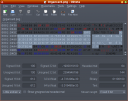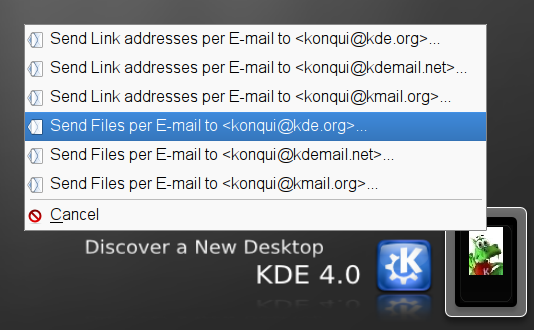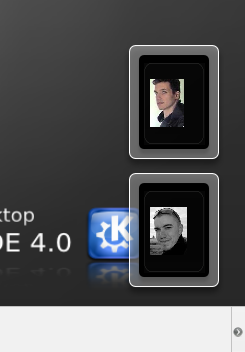One year ago I showed a first picture of Okteta, a successor to KHexEdit in-work. Time to show a new one, here it is:
Well, no big changes in the UI, except for the style and the color. Still looking similar to KHexEdit (which it shall in the default settings, to easen moving over).
But under the hood things are developing. Created a framework called Kakao which serves as a template for programs, so one just needs to plug in factories for documents, views, and tools to get a full featured program for your $datamodel. Currently I am laying grounds for the concept of model synchronizers. Something I have been looking for since ages, really, how can our allday-programs just be without it? Right now I am trying to map the action “Save as…” to it, meaning something like switching the synchronizer, if the remote data model is different (e.g. PNG->JPG for stream formats), or only the location/url. Why is there no option with today’s “Save as…” actions to remove the old remote data model (like old file) BTW? Sometimes one just wants to move/rename a file or recode it, while working on it. Is this workflow so unusual?
An interesting problem is:
How can one limit access to a subset of methods of a class for only certain other classes in C++? I can define friend class Class; for access to all protected methods. But I would like to declare different friends for different subsets of the protected methods. So only the synchronizer classes could call void setRemoteHasChanges( bool hasChanges ); or similar for document subclasses, not some nasty plugin doing dirty things. I imagine I could play some tricks with subclassing abstract classes, but those methods don’t need to be virtual. Is there a better way?
No time to take part in things like Krush Day, me bad boy, I am just too fascinated by the possibilities I see coming with the Kakao framework!




